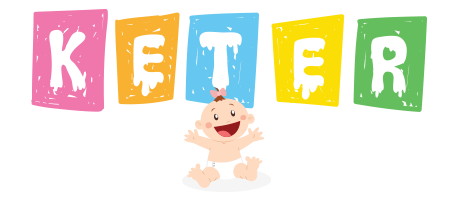
The COVID-19 pandemic disrupts normal life around the world and affects all areas of life. Pandemics require rapid action, and as new information emerges, synthesis and reasoned treatment guidance are urgently needed. Breastfeeding protects mother and child; The health benefits are compelling and evidence-based. In order to plan and support breastfeeding during the current pandemic, two areas need to be understood: 1) the clinical features of COVID-19 associated with breastfeeding, and 2) the protective nature of breastfeeding, including skin-to-skin practices. - nursing care. . This overview is intended to summarize how to manage breastfeeding during COVID-19
Recent publications on breastfeeding during COVID-19 disease have been evaluated to provide guidance in clinical practice.
Current data show that the coronavirus is not transmitted through breast milk. The benefits of breastfeeding outweigh the risks during COVID-19 disease or prevention in both the baby and the mother. Widespread disease control measures must be taken and taken care of.
All samples from women recovering from COVID-19 had specific binding activity to SARS-CoV-2, while pre-pandemic samples had low levels of non-specific or cross-reactive activity, the researchers reported. They further tested the antibody response to the SARS-CoV-2 receptor protein binding domain and found that 12 of 15 samples from previously infected donors showed significant IgA binding activity. Some of these samples also contained other reactive antibodies, such as immunoglobulin G and immunoglobulin M. IgA and IgG levels were highest compared to controls.
The results are consistent with a study published in the September Journal of Perinatology, which also found high levels of IgA and some IgG and IgM that were reactive with the S1 and S2 subunits of the SARS-CoV-2 spike protein in most milk samples collected during a pandemic. None of the breast milks tested positive for SARS-CoV-2 by PCR, indicating that none of the mothers became infected during sampling. There is no evidence that the 41 women who donated the samples were ever infected with the virus, according to study author Veronique Demers-Mathieu, an immunologist at Medolac Laboratories in Boulder City, Nevada, so it is unclear whether these antibodies were the result of SARS-CoV. -2 or another viral infection.
Conclusions
Breast-feeding and maternal and infant care should be encouraged and skin-to-skin contact strengthened during COVID-19. If the nursing mother is seriously ill, milk and the baby should be fed by a healthy person. Guidelines are under development and can be made available to healthcare institutions as needed. According to a new study, breast-feeding women who received an injection of COVID-19 who passed a vaccine from their mother to their babies were not infected with SARS-CoV-2.
The researchers analyzed 37 milk samples from 18 women treated with COVID-19. There were no patient milk samples, but nearly two-thirds of the samples contained two disease-specific antibodies.
The results show that mothers are safe if they continue to breastfeed with proper precautions during COVID-19 infection," said Courtney Meehan, professor of anthropology at WSU and co-author of the study, which appears in the Feb. 9 issue of the study mBio magazine.
The team also includes scientists from the University of Rochester School of Medicine and Dentistry, Brigham and Women’s Hospital, and Harvard Medical School and the University of Rochester Medical Center.
Researchers continue to work in this area and have now enrolled nearly 50 women who have been diagnosed with COVID-19. The progression of the disease was monitored for two months.
A preliminary study published in mBio reported the first group of 18 women who submitted milk samples. The results of larger studies will come, but scientists believe they will support, expand and validate the first results, McGuire said.
McGuire, Meehan and their colleagues have previously published a review of related scientific studies on coronary viruses in breast milk and found that there is little evidence of their presence or absence.
This work, published in Maternal and Child Nutrition in May, found only one study that tested breast milk for the associated SARS coronavirus after discovering the virus in 2003. The review found no effort to detect the subsequent, fatal MERS. (Middle Eastern respiratory syndrome) coronavirus in breast milk.
Lack of knowledge has spurred this effort by several universities to inform national and global guidelines for COVID-19 and breastfeeding. This research was supported by the Bill and Melinda Gates Foundation, Medela and Milk Stork, the National Institutes of Health, the WSU Health Research Center, and the U of I's Agricultural Experiment Station. Overall, our data do not support the transmission of SARS-CoV-2 from mother to child by milk, published by the American Society for Microbiology. These results support the recommendations for further breast-feeding during mild to moderate maternal disease COVID-19.
The work was led by researchers Michelle "Shelley" McGuire and Mark A. McGuire, funded by the Bill and Melinda Gates Foundation. Shelley is a nutritionist specializing in breast milk and Margaret Ritchie, head of the Family and Consumer Sciences School. Both are at the Faculty of Agricultural and Biological Sciences. Her research will be featured on the CALS website, The Vandal Theory podcast and U of I presentations.
